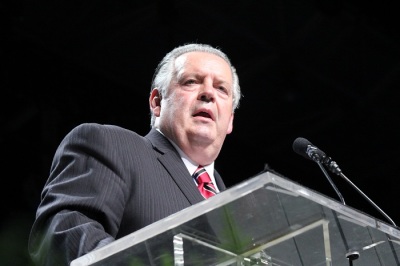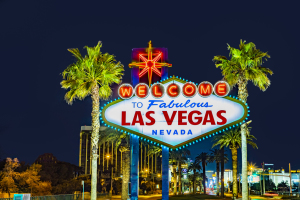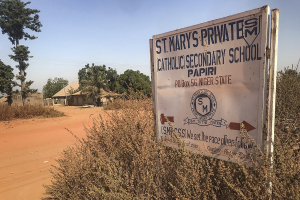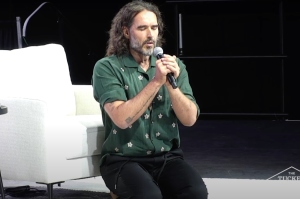Why is abandoning the rule of law so dangerous?
When the Constitutional Convention in Philadelphia concluded in September 1787 and sent the Constitution to the various states for ratification, Benjamin Franklin was reportedly asked, “Dr. Franklin, what kind of government have you given us?” Franklin replied, “A Republic, if you can keep it!”
That exchange has possessed enough historical cache that new Supreme Court Justice Neil Gorsuch recently authored a book titled A Republic, If you Can Keep It.

The first time I became aware of “A Republic, If You Can Keep It!” was in my high school “Civics” class. For younger Americans, Civics class was a required class in the high school curriculum where we studied our federal and state government structure. In that class we studied the three branches of the federal government, their respective duties and responsibilities, separation of powers, the constitutional amendment process, and the reasons for the “Connecticut Compromise” that produced differing state representation in the House of Representatives and the Senate and the Electoral College.
My classmates and I studied the arguments involved in the ratification process as embodied in the Federalist Papers. Let me be clear — all students (not just college prep students) were required to pass this class in order to graduate from a largely blue collar, working class high school in 1965.
It was one of the best and most useful classes in my entire high school curriculum. It grieves me that too many of my younger fellow citizens (I am from the Class of ’65) never had such a class as “Civics.” Unfortunately, it has far too often been removed from the curriculum in the intervening years since then. Thus, they are far less prepared to be the active, informed citizens needed to make our self-governing system of government function as well as our forebearers intended.
If our younger citizens had been required to study Civics, I am certain more of them would understand that we in the United States live in what was designed as a “Constitutional Republic,” not a democracy. And what is the critically important difference in these two forms of government?
Democracy is direct rule by the majority through majority vote, which can easily deteriorate into “the tyranny of the majority,” running roughshod over minority rights. A Constitutional Republic is the rule of law in which there are instances where the majority may not be able to act against a minority view because there are governing documents (i.e., the Constitution and its Bill of Rights) approved by a super majority that guarantees every citizen certain rights even when they may be rejected by a majority of citizens. Such freedoms as religious expression, speech, and assembly (First Amendment) and the right to bear arms (Second Amendment) are guaranteed, even when a majority in certain states or in the country as a whole may disagree with a citizen’s words or actions. The rule of law produces such sentiments as “I disagree with everything you say, and I defend to the death your right to say it.”
All of the above is by way of introduction of the fact that the “rule of law” is under direct assault in the United States and some of the most dangerous offenders are government officials whose sworn duty is to enforce the law as it is, not as they might like for it to be.
Such unlawful behavior lethally undermines the rule of law and will lead to oligarchy (the rule of the powerful minority) and then to anarchy (no effective law and order).
The latest prominent example involves the newly elected District Attorney of Los Angeles George Gasćon. In his inaugural address District Attorney Gasćon announced that he was arbitrarily suspending any prosecutions that ask for capital punishment (even though a majority of his constituents support that option in some cases). He will also no longer allow for cash bail for suspects (in spite of the fact that just last month California’s citizens rejected Proposition 25, which would have ended the state’s system of cash bail.
The District Attorney also proclaimed that crime was largely a function of “poverty,” and so he would no longer prosecute trespassing, loitering, public intoxication, and drug possession offenses. He also announced that it was now permissible to resist arrest without fear of prosecution. These examples serve notice to the prosecutors and police who work for his office, perpetrators eager to perpetrate, and the public he has pledged to serve, that he is going to be focusing on the “rights” of perpetrators. Of course, this is at the expense of those who have a right not to be transgressed against or trespassed upon.
When you tell segments of the population that you don’t care how they voted, that you are going to decide personally which laws you are going to enforce and which laws you are going to ignore, you are introducing a fatal injection into the blood stream of a governmental system based on the rule of law. Make no mistake, the end game will be the breakdown of the rule of law and its fellow traveler — anarchy.
When people are told by law enforcement that they can break laws with impunity — many more will do so. When the public discovers that the government is not going to protect them from perpetrators, they will defend themselves. In other words, they will take the law into their own hands. And anarchy and tragedy will ensue.
When you allow office holders to just ignore laws they do not like, then order breaks down, and rule of law is lost. We are already well down the road to having lost the rule of law.
As Americans, we have been privileged to live our lives in this extraordinary country where the rule of law has been part of the furniture in the room and, thus, we have tended to take it for granted. It is actually very rare, and it only holds sway for a handful of countries across the globe.
For example, in Bush v. Gore in 2000, the Supreme Court ruled that George W. Bush had won the election with the minority of the popular vote and a margin of less than 600 votes in Florida, the deciding vote electorally. Polls showed that at least 20% of Mr. Gore’s voters believed that he had won the election. However, when the Supreme Court ruled, they accepted the decision peacefully. That has been, and is, rare in countries around the world. I fear that such a decision would not be accepted as peacefully today, a mere 20 years later.
The warning alarms are clanging, and the canary in the coal mine has died. The hour is late, and Americans must rally in defense of the rule of law, or face losing what has been a great American birthright.
Dr. Richard Land, BA (magna cum laude), Princeton; D.Phil. Oxford; and Th.M., New Orleans Baptist Theological Seminary, was president of the Southern Baptists’ Ethics & Religious Liberty Commission (1988-2013) and has served since 2013 as president of Southern Evangelical Seminary in Charlotte, NC. Dr. Land has been teaching, writing, and speaking on moral and ethical issues for the last half century in addition to pastoring several churches. He is the author of The Divided States of America, Imagine! A God Blessed America, Real Homeland Security, For Faith & Family and Send a Message to Mickey.



























